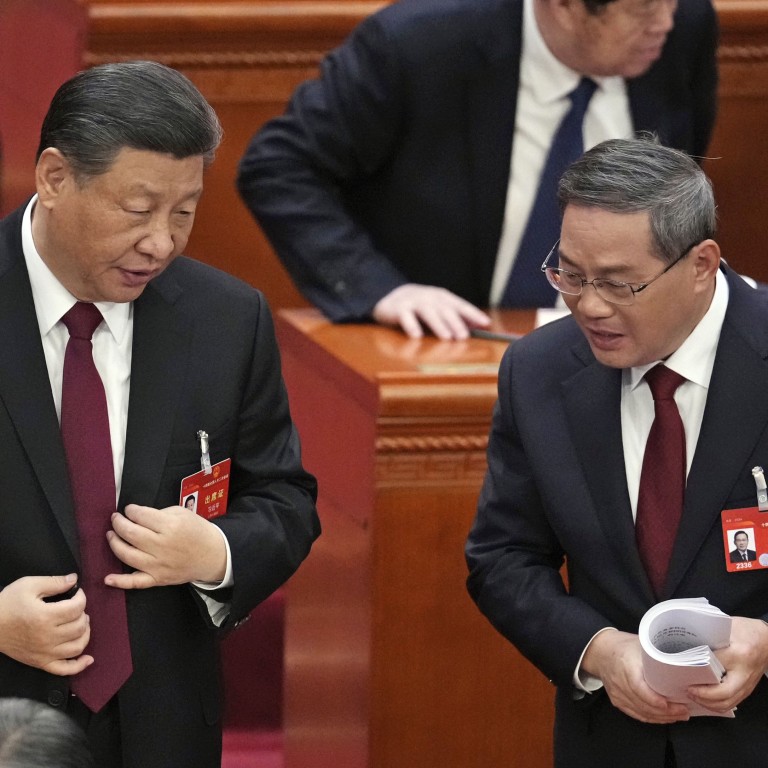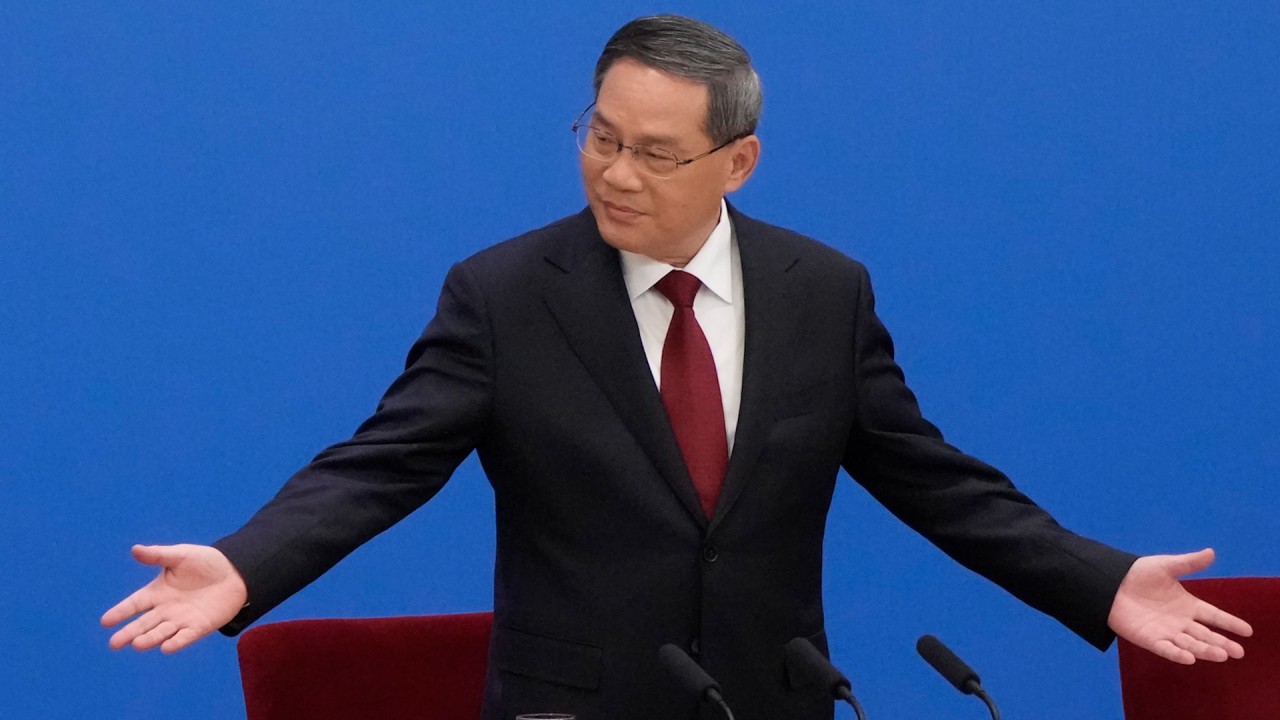
China’s Communist Party to get deeper control over State Council led by Premier Li Qiang as ties are ‘redefined’
- Amendment to Organic Law of the State Council is expected to pass on Monday, the last day of the National People’s Congress
- Move shows role of cabinet as Xi’s ‘loyal policy implementer’ is being endorsed by the highest legislative body, researcher says
China’s legislature is set to approve a bill to impose further and stronger Communist Party control on the State Council, the country’s cabinet.
It includes specific clauses saying the council will closely follow the Communist Party’s ideology, leadership and instructions, further defining its role as faithful policy implementer of the ruling party.
The latest amendment would be the first change to the State Council law since 1982 – when it was formally introduced and passed.
Li Hongzhong, vice-chairman of the NPC Standing Committee, said the amendment was part of China’s party-state overhaul that began last year, which sought to further consolidate policy-formulation and decision-making power within the party apparatus led by Xi.
The law is of “crucial significance to ensuring that the State Council performs its duties in accordance with the constitution and other laws”, Li told the legislature on Tuesday in explaining the draft amendment, which consists of 20 articles.
One article stipulates that the council shall uphold the leadership of the ruling party and be guided by Marxism-Leninism, as well as the political doctrines of previous and current party leaders.
Premier Li vows China’s ‘new type’ of diplomacy will pursue equality and order
The article also says that the State Council shall resolutely safeguard the authority and centralised and unified leadership of the party’s decision-making Central Committee led by Xi, and resolutely implement its decisions and instructions.
Another newly added article stipulates that State Council members shall “resolutely safeguard” the authority and leadership of the party Central Committee, and abide by the Constitution and laws when performing their duties.
The amendment restores some – but not all – transparency clauses that had been removed from the working rules.
A further additional article says unless they are required to be kept confidential by law, the plenary session and the executive meeting of the State Council “shall be announced in a timely manner”.
Risks ahead but China’s economy to stay on long-term, tech-led course
But the amendment does not mention other transparency clauses taken out from the “working rules” – including one that required the State Council to disclose “all matters involving public interests, public rights, matters that need to be widely known and matters of social concern” in a “timely, comprehensive, accurate and specific manner”.
A China politics researcher at Peking University said the revision of the Organic Law at the NPC was “a final step in redefining party and state relations” in the country.
“The law’s passing … means the hierarchy of Xi leading the Communist Party to decide on China’s overall direction and policy, while Li’s State Council becomes Xi’s loyal policy implementer, is being endorsed by the highest legislative body,” said the researcher, who declined to be named due to the sensitivity of the matter.
“Xi and the party’s dominance in Chinese politics will be even more solid as the State Council will never be a challenger.”


